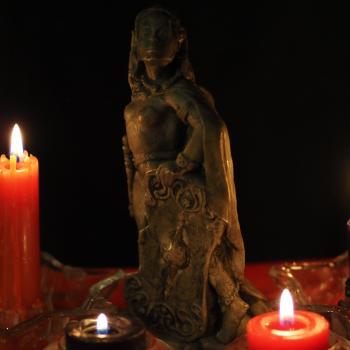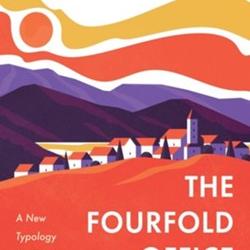This is the final reflection in our Advent Series, "The Hopes and Fears of All the Years," by biblical scholars and preachers John C. Holbertand Alyce McKenzie. For an overview of the series with links to all the reflections, click here.
December 26
Matthew 2:13-23
A Humble Savior
The passage for the Sunday after Christmas, Matthew 2:13-23, contrasts the humble identity of the infant savior with the arrogant insecurity of Herod. These verses represent the closure of the infancy narrative in Matthew's gospel.
New Testament scholar John Meier regards the infancy narrative in Matthew as a "proleptic passion narrative." He says, "All that Matthew will later say about the Son who is the humble yet powerful servant (8:17, 12:18-21, 27:39-43), is already prefigured in his proleptic passion narrative" (The Vision of Matthew, p. 57).
This closing of the infancy narrative highlights the paradox of the transcendent yet lowly Son. The one who has been acknowledged by God as his own Son flees for his life while other infants are massacred in his place. When the exiled Son returns home, the threat of further danger forces him into exile again, in Galilee of the Gentiles, which will be his place of exile for the whole of his public ministry. He will come home to Judea only to die.
In the meantime, he who bears the exalted title of Son must simultaneously bear a title denoting his lowly, humble, obscure earthly status. "He shall be called a Nazorean" (2:23). Matthew understands the name to mean "an inhabitant of Nazareth." In highlighting this identity of Jesus, Matthew is making an analogy to a sacrificial vocation, to Samson's vocation as a Nazirite, one who takes a vow to observe various abstinences in their religious vocation in Numbers 6. In highlighting Jesus' identity as a "Nazorean," Matthew is also pointing readers to his obscurity. The village of Nazareth is not mentioned in any ancient records outside the New Testament. It was evidently a very insignificant place, a geographical fact emphasized in John 1:46: "Can anything good come from Nazareth?" (See The Cambridge Bible Commentary on the New English Bible: The Gospel According to Matthew, p.34.)
Matthew presents Jesus as a Son of God who is an obedient servant, a humble sufferer (The Vision of Matthew, p. 57).
An Insecure King
In an excerpt from her book Amazing Grace: A Vocabulary of Faith, contemporary Christian author Kathleen Norris contrasts the fear of Herod with the faith of the season of Epiphany.
Everything he (Herod) does, he does out of fear. Fear can be a useful defense mechanism, but when a person is always on the defensive like Herod, it becomes debilitating and self defeating. To me Herod symbolizes the terrible destruction that fearful people can leave in their own wake if their fear is unacknowledged, if they have power but can only use it in furtive, pathetic, and futile attempts at self-preservation.
Herod's fear is the epitome of what Jung calls the shadow. Herod demonstrates where such fear can lead when it does not come to light but remains in the dark depths of the unconscious. Ironically, Herod appears in the Christian liturgical year when the gospel is read on the Epiphany, a feast of light.
Norris tells of preaching on Herod on Epiphany Sunday in a small country church in a poor area of the Hawaiian island of Oahu. It was an area of the island tourists were warned to stay away from, an area where those who served the tourist industry as maids and tour bus drivers could afford to live. The church had much to fear: alcoholism, rising property costs, drug addiction, crime. The residents came to church for hope.
In her sermon Norris pointed out that the sages who traveled so far to find Jesus were drawn by him as a sign of hope. "This church," Norris told her congregation, "is a sign of hope in this community. Its programs, its thrift store, have become important community centers, signs of hope. The church represented," said Norris, "a lessening of fear's shadowy powers, an increase in the available light." She continued to say that "that's what Christ's Epiphany celebrates: his light shed abroad into our lives." She ended her sermon by encouraging the congregation to, like the ancient wise men, not return to Herod but find another way. She encouraged them to "leave Herod in his palace, surrounded by flatterers, all alone with his fear" (Amazing Grace, pp. 226-227).





